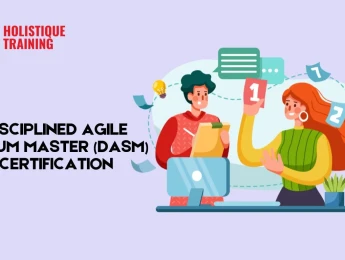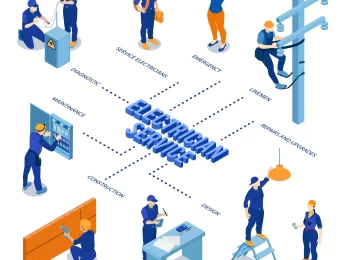The gas and oil industry is a vast industry with global influence. As with any business, projects need to be comprehensively managed to ensure they remain on task. This is particularly true for projects within the gas and oil industry, where there are an increased number of challenges relating to risk.
For effective risk management, it is essential to identify the key challenges the project may face. To do this, procedures such as HAZID HAZOP, MAR, and LOPA must be followed as closely as possible. Furthermore, other factors need to be accounted for: fluctuations in the market, environmental changes, and employees’ capabilities.
Gas & oil are products that will forever be required, so there is a great responsibility resting on the organisations that manage them. Businesses dealing with these have to protect their financial stability for themselves. With the widespread usage of this market, they need to consider the financial situations of customers, vendors, suppliers, and investors. Project risk management must consider each one of these influences when making huge planning decisions.
Those in charge of project management need to be dedicated, structured and able to understand the complexity of this field to ensure that all project risks are managed and monitored effectively.
Upon completion of this course, participants will be able to:
- Comprehend key roles, responsibilities, and activities associated with project risk management.
- Understand the human influence in risk management.
- Recognise the human interpretation of risks.
- Review the challenges faced within the industry.
- Analyse ideal methods and techniques for risk management optimisation.
- Effectively use relevant and appropriate tools for risk management.
- Understand the changing nature of the industry and the risks involved.
This course is designed for people who are involved in project risk management throughout an oil and gas-focused organisation. It would be most beneficial for:
- Project Managers
- Operations Managers
- Oil and Gas Architects.
- Maintenance & Reliability Engineers
- Senior Executives
- Project Consultants
- Asset Managers
- Technical Supervisors
- Finance Managers
This course uses a variety of adult learning styles to aid full understanding and comprehension. Participants will review real-world risk assessments and analyses for projects within the gas and oil industry to assess the risk mitigation tactics and their solutions.
They will be presented with the correct tools required to evaluate the cause and effect within the industry effectively, and these previous experiences will provide them with the opportunity to gain an in-depth understanding of how one would manage risk within a project. Participants will later design their own project plans based on their experience in their respective roles and discuss the potential challenges and probable solutions available.
Day 5 of each course is reserved for a Q&A session, which may occur off-site. For 10-day courses, this also applies to day 10
Section 1: Fundamentals of Risk Management Concepts
- Defining risk.
- Reviewing specific project risks within the gas and oil industry.
- Understand the duality of risk – threats and opportunities.
- The difference and relation in business, operational, and project risk.
- Introducing the risk management process.
Section 2: Identifying Risks
- Crucial roles and responsibilities of risk management.
- Common and beneficial practices adopted widely in gas and oil organisations.
- Assess the ideal approach for the specific organisation.
- Industry-specific techniques for identifying risks.
- Overview of MAR, LOPA, and HAZID HAZOP.
- Understand the ‘Bow Tie’ methodology.
- Categorisation aligning with the Risk Breakdown Structure (RBS).
Section 3: Risk Analysis Techniques
- Alternative risk analysis formats.
- Identifying recommended industry-specific practices.
- Explain the difference between Qualitative, Semi-Qualitative, and Quantitative.
- Organisational impact versus environmental impact.
- Sensitivity and expected monetary value analysis.
Section 4: Human Influence
- Evaluating the potential of human error.
- Past experiences, current perceptions, and mental outlook.
- Understanding external and internal human influence.
Section 5: Planning and Implementing Risk Responses
- Prioritising risks with the greatest impact.
- Strategies for risk response.
- Formulating and evaluating action plans.
- Gaining the appropriate approval for action plans.
- Implementing and monitoring.
- Conducting response plans when necessary.
Section 6: Reporting and Communicating Risks
- Correctly reporting risks.
- Minimising and escalating risks when appropriate.
- Embedding the risk management process.
- Utilising feedback to make amendments.
Upon successful completion of this training course, delegates will be awarded a Holistique Training Certificate of Completion. For those who attend and complete the online training course, a Holistique Training e-Certificate will be provided.
Holistique Training Certificates are accredited by the British Assessment Council (BAC) and The CPD Certification Service (CPD), and are certified under ISO 9001, ISO 21001, and ISO 29993 standards.
CPD credits for this course are granted by our Certificates and will be reflected on the Holistique Training Certificate of Completion. In accordance with the standards of The CPD Certification Service, one CPD credit is awarded per hour of course attendance. A maximum of 50 CPD credits can be claimed for any single course we currently offer.
Tags
Project management, Risk management, petroleum, Oil & Gas, risk, LOPA, HAZOP, HAZID, Risk Analysis, MAR,- Course Code IND01-133
- Course Format Classroom, Online,
- Duration 5 days














